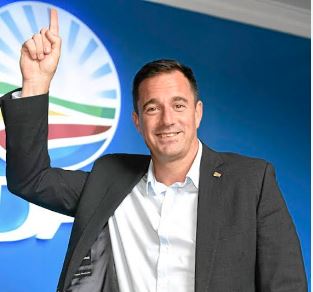South Africa’s Democratic Alliance has demanded key economic portfolios and the deputy presidency, causing delays in President Ramaphosa’s cabinet announcement.
As President Cyril Ramaphosa prepares to finalize his new Cabinet, negotiations between the African National Congress (ANC) and the Democratic Alliance (DA) have intensified over the allocation of key ministerial positions in the government of national unity (GNU).
The DA, positioning itself as a significant player in the coalition, has pressed for substantial representation, insisting on at least 10 of its MPs to be appointed to crucial economic portfolios. They have also nominated their party leader, John Steenhuisen, for the position of deputy president, arguing that as the second-largest party, they deserve a commensurate role in leadership.
“The ANC’s stance that they are entitled to the presidency and speaker roles due to being the largest minority party should logically extend to us securing the deputy presidency,” stated a DA insider, reflecting the party’s negotiating stance.
However, the ANC has rebuffed these demands, countering that the Cabinet positions are limited and increasingly contested among various parliamentary parties within the GNU. As more parties like the UDM, Patriotic Alliance, PAC, Rise Mzansi, and FF+ have joined, the ANC argues that the allocation of roles must be proportionate and equitable.
Despite the deadlock, the DA has opted to keep communication channels open, expressing their intent to secure several ministries, including Communication and Digital Technology, Trade and Industry, Transport, Public Service and Administration, Water and Sanitation, Local Government, and Health. They are also seeking deputy ministerial positions in Finance and Health.
Former DA leader Tony Leon acknowledged the challenges of navigating a multiparty coalition, emphasizing the need for consensus-building and compromise. “In a government of national unity, each party will advocate for its policies, but practical decisions will require collaboration,” Leon remarked, highlighting the provisions in the GNU for resolving disagreements through negotiation and, if necessary, a majority vote of constituent parties.
As negotiations continue, the composition of Ramaphosa’s Cabinet remains uncertain, with the outcome likely to shape the dynamics of governance in South Africa’s multiparty political landscape for the foreseeable future.



